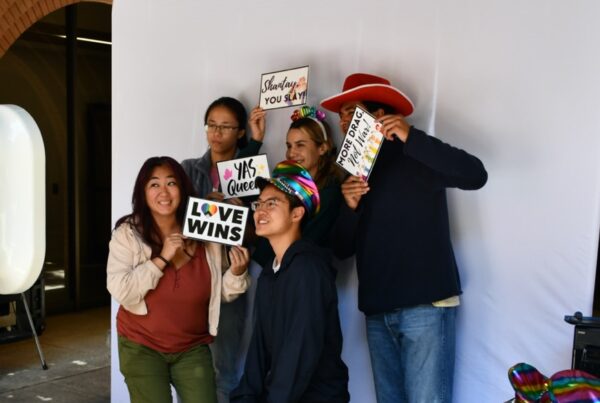PhD in Gerontology student Elizabeth Avent first encountered a glaring gap in violence research when she was an undergraduate student at Georgia State majoring in sociology. She was trying to write a paper on intimate partner violence in older adults — but she couldn’t find much research on it.
Now, as a research assistant at the USC Secure Old Age Lab and USC Center on Elder Mistreatment, she’s devoting her doctoral program to investigating the important but overlooked topic.
“Elder abuse and late-life intimate partner violence are two distinct things,” Avent explains. “Intimate partner violence tends to go down as age increases, but it doesn’t go away.”
In her quest to understand more about domestic violence in older adults, Avent, who is now in the second year of her PhD program, investigated connections between people who have experienced adverse childhood experiences, or ACEs, and victims of intimate partner violence over age 60. She has uncovered that people who experience more than one ACE, especially falling victim to sexual abuse or witnessing domestic violence, face higher odds of being victims of intimate partner violence after age 60.
The next step is to figure out how to use these risk factors to identify people in danger of becoming victims of domestic violence and ultimately make shelters and other resources for victims more inclusive for people of all ages, Avent says.
“We have a lot of work to do. I want to see where we could intervene for people at risk of abuse and provide trauma-informed care,” she says.
Avent first encountered research on violence and older adults by USC Leonard Davis faculty members during her undergraduate and master’s in gerontology programs at Georgia State. After learning more about USC at a Gerontological Society of America conference, she enrolled in the USC PhD in Gerontology program. Her mentor is one of the authors whose work she read years ago: Kathleen Wilber, Mary Pickford Foundation Professor of Gerontology at the USC Leonard Davis School.
“I saw that USC faculty were doing a lot of exciting research, and I wanted to be a part of that,” Avent says. “I like that the school is very collaborative. It pushes you out of your comfort zone, and that’s what I really needed.”
Avent says she ultimately wants to go into policy research, conduct and encourage more multidisciplinary investigation into late-life intimate partner violence, and apply the science in the real world to make violence prevention and intervention services more age-inclusive.
“I really want to convince people in other disciplines that this is an important subject and something we need to talk about,” she says. “We can do something about it. I want my work to reach the people doing the work on the front lines.”
This story originally appeared in the Spring 2019 issue of Vitality magazine with the title “Making an Impact.” Photos by Stephanie Kleinman.





